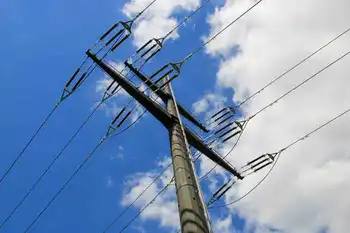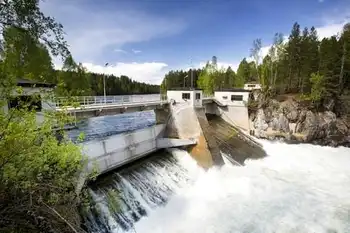Hydro-Quebec not the ogre in NB Power takeover
The agreement has whipped up a storm of controversy. Premier Danny Williams of Newfoundland and Labrador promptly spoke up against it. He condemned Quebec's "despicable power grab" and attacked Mr. Graham for what he called "complete capitulation," having "agreed to sell away" his province's future. New Brunswick's Conservative opposition leader, David Alward, has accused the Liberal Premier of having "sabotaged the interests of its fellow Atlantic provinces so viciously in this transaction."
A cabinet minister in Mr. Graham's Liberal government waffled when asked by Radio-Canada whether he supports the deal. Nova Scotia's Premier Darrell Dexter has joined with Mr. Williams in demanding written guarantees that power exports through New Brunswick will be unaffected.
Protests against the sale of NB Power have broken out at the legislature, at MLAs' offices, on Facebook and on news websites. Prominent in the protests are union groups, perhaps motivated by the realization that Hydro-Québec's labour productivity compared with NB Power's is more than 50 per cent better with respect to generation and 20 per cent better with respect to customer service.
A Léger Marketing survey released this week found that 60 per cent of New Brunswickers view the deal unfavourably, while 22 per cent say they view it favourably. The rest don't know or are undecided.
Prince Edward Island Premier Robert Ghiz, bucking the wave of hysteria, is negotiating with Hydro-Québec to find ways of bring down his province's sky-high power rates. What is behind all this controversy?
Under the agreement, Hydro-Québec would take over NB Power's $4.75-billion debt, as well as its current obligations. In return, Hydro-Québec would receive NB Power's hydroelectric stations, and its transmission and distribution assets. Upon completion of the refurbishment of the Point Lepreau nuclear generating station, expected now in late 2011, Hydro-Québec would take over the nuclear operation. New Brunswick would see its coal- and oil-fired generation downsized.
Consumers would benefit. Residential, small-business and institutional consumers would get a five-year rate-freeze, followed by regulated rates adjusted by the rate of inflation and the market cost of any additional supply needed to meet load growth. New Brunswickers concerned about long-term residential rates might note that in recent years, Hydro-Québec's rates have risen faster than inflation. New Brunswick's large industrial users, key employers in the province, would enjoy a rate reduction of about 30 per cent.
The deal stipulates open access to the transmission network in New Brunswick and market competition for future electricity supply in excess of a guaranteed block of power that Quebec would provide in perpetuity.
NB Power has blundered from crisis to crisis for a decade and a half. Bad technology choices, propping up losing operations and catastrophic contracting failures have left a huge per-customer debt, rates among the highest in Canada and very high operating costs, with prospects of rising even higher.
As the most oil-dependent large utility on the North American continent, NB Power and its customers have been pounded by fluctuating world oil prices. Recognizing this weakness, NB Power announced in 2001 a plan to convert its largest oil-fired station to an alternative fuel called Orimulsion, which comes solely from Venezuela. As $1-billion was being spent to ready the plant for this fuel, a massive strike pitted Venezuelan state oil workers against President Hugo Chavez's government. The resulting supply interruption forced NB Power into the red.
Heedless of this danger signal, the utility continued to pour money into the Orimulsion scheme. In 2003, Venezuela announced it would not sign any new sales contracts. NB Power had only a memorandum of understanding with Venezuela, not a binding contract. To his great credit, the CEO who inherited this mess, David Hay, eventually negotiated a deal rescuing about half of the money sunk into the refurbishment.
When NB Power's nuclear reactor, Point Lepreau, succumbed to premature aging, NB Power turned to Atomic Energy of Canada Ltd., the federal Crown corporation, to refurbish it. The project ought to be nearing completion; it will take another 18 months or more, with costs mounting rapidly. Replacing the foregone power caused by this delay could cost as much as $1,000 per customer; Hydro-Québec would absorb some of that cost. New Brunswick is pleading with the federal government for money to compensate for AECL's poor performance, but the prospects of that are uncertain.
NB Power's Grand Lake is one of the oldest, the most polluting and highest-cost coal-fired generating stations in North America. NB Power strip-mines ruinously expensive local coal with high sulphur and mercury levels. Grand Lake drained NB Power's finances, but politics dictated that the handful of existing jobs be protected.
Although the utility has done better for the past five years, its overall earnings over the past 15 years have been negative. In its most recent fiscal year, NB Power declared a modest profit, but it is dangerously dependent on the success of the nuclear project.
Many reform efforts have foundered. The previous Conservative government toyed with imitating Alberta's competitive power market but did not follow through; nor did its Liberal successor. And proposed public-private partnerships for plant refurbishments never found takers.
Politically motivated rate freezes have abounded, though in the past five years, rates have risen by 27 per cent, much more than inflation. For all these reasons and more, the upward pressure on rates will continue if the status quo remains.
Political reaction to the deal has engulfed Eastern Canada.
Mr. Williams believes Quebec is intent on thwarting Newfoundland's ambitions to develop further hydroelectric generation in Labrador.
Like his predecessors, he feels aggrieved over the 1969 contract that premier Joey Smallwood signed with Quebec to develop Churchill Falls in Labrador. The Supreme Court of Canada has twice affirmed the validity of that contract. Mr. Williams's government wants to develop new hydro capacity on the Lower Churchill. His extreme reaction to the New Brunswick-Quebec combination arises from his fear that Quebec will do something to harm his planned development.
The Newfoundland government has doubts about its own scheme.
Its 2007 energy plan was issued when natural gas prices were double what they are today and when New England and Ontario were projecting electricity shortages in the near future. Even in those favourable circumstances, the Newfoundland scheme relied heavily on federal-government financial help. Today, with market prices for power off sharply and electricity consumption falling, the prospects for the Lower Churchill have softened.
Newfoundland had a chance to bid on access to a new international transmission line connecting New Brunswick to Maine two years ago, part of a possible route to market for Labrador power. Mr. Graham points out that Newfoundland had that opportunity to buy capacity on this cross-border line, but declined.
Nova Scotia has also complained about Quebec's ability to act as spoiler of potential power exports to the United States. That province has some modest wind and tidal power developments, but the practical prospects for its becoming a major exporter of renewable electricity to New England appear remote.
In any case, the reaction of both Newfoundland and Nova Scotia seems to be based on ignorance of the open transmission access provisions in both the proposed deal and the requirements of the U.S. Federal Energy Regulatory Commission. Quebec, a major exporter of electricity to the United States, must have a FERC licence to export it there, which makes FERC the key transmission regulator for Hydro-Québec.
FERC's rules require companies selling power in the United States to prove that they will not have undue influence on the market and require that they allow open access to their transmission systems, including to Newfoundland and Nova Scotia. Given Hydro-Québec's existing and planned business interests in the United States, FERC's rules are more than sufficient to restrain any imperialist tendencies on the part of Hydro-Québec.
Most of the opposition to the NB Power-Hydro-Québec deal is thus politically motivated hyperbole and should not be taken too seriously.
These interprovincial electricity trade concerns do, however, highlight a genuine national weakness. Prime Minister Stephen Harper, like many of his predecessors, has not spoken up for domestic free trade in electricity. The National Energy Board, highly effective in facilitating interprovincial oil-and-gas trade and transit, is silent on electricity. Now, with Quebec seeking a deal with New Brunswick and hitching its wagon to open access transmission, there might be a glimmer of hope for progress on a national agreement for open access on the model of the FERC rules.
Whether or not wider regional electricity solutions are found, New Brunswick faces a pressing need to cut electricity liabilities while slashing the costs of providing power. None of the critics of the proposed Quebec-New Brunswick agreement have offered any real alternatives, let alone one better than the deal now on the table.
Related News

N.S. joins Western Climate Initiative for tech support for emissions plan
HALIFAX - Nova Scotia is yet to set targets for its new cap and trade regime to reduce greenhouse gases, but the province announced Monday that it has joined the Western Climate Initiative Inc. -- a non-profit corporation formed to provide administrative and technical services to states and provinces with emissions trading programs.
Environment Minister Iain Rankin said joining the initiative would allow the province to use its IT system to manage and track its new cap and trade program.
Rankin said the province can join without trading greenhouse gas emission allowances with other jurisdictions -- California, Quebec, and Ontario are currently…




